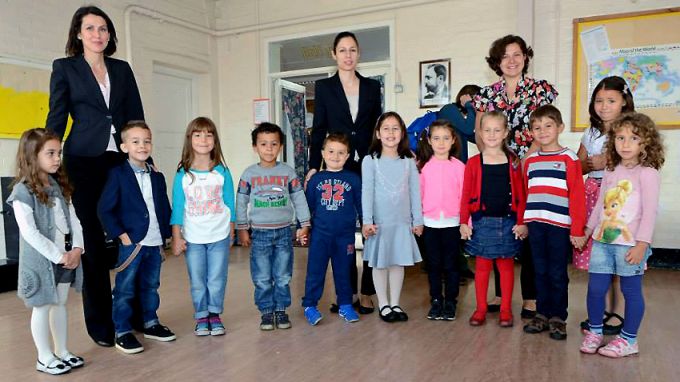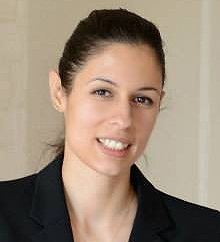
A growing number of little Bulgarians leave this country with their families - this is the sad statistics of the educational ministry. The data is really shocking: 9,784 children, aged 6 – 18 have left in 2016 only. This is the population of a small town, inhabited by kids and young people only. How do these children preserve their native Bulgarian language? The issue concerns many of our compatriots abroad and different initiatives across various cities and states take place for the unveiling of Bulgarian schools.
Today we present to you Mrs. Nina Borisova, whose support has contributed to the establishment of the St. Ivan Rilski /St. John of Rila/ school in Cambridge. It now has a history of two years and continues to receive new pupils.
The motivation of a kid to come and stay is the major problem, faced by Nina and her team. Almost each new child is not sure why he/she is coming. The parents have said that is how it should be, but the child itself is not too convinced and we know that whatever is obligatory quickly becomes boring.
 “Even if they were not born in England the children quickly adapt to the world outside,” Nina Borisova says. “This happens in no time. They recognize the language and culture of the other country as their own too quickly. They are not sure why they should learn Bulgarian. No matter if both parents are Bulgarian, whenever asked, the kids won’t answer with: “I am a Bulgarian”. They won’t recognize the Bulgarian as their mother tongue, since it is not related with the place they live.”
“Even if they were not born in England the children quickly adapt to the world outside,” Nina Borisova says. “This happens in no time. They recognize the language and culture of the other country as their own too quickly. They are not sure why they should learn Bulgarian. No matter if both parents are Bulgarian, whenever asked, the kids won’t answer with: “I am a Bulgarian”. They won’t recognize the Bulgarian as their mother tongue, since it is not related with the place they live.”
One of the major problems of the Bulgarian school abroad is that adapted curricula are necessary, not just shortened ones. According to Nina Borisova this is due to the fact that the basic skills of the children remain unknown along with the level of their Bulgarian. Thus a teacher faces a tough task:
“He or she has to adapt to the needs of each child, in order for the classes to be equally accessible, since sometimes children in the same class know Bulgarian language at a different level. Sometimes they just find it easier to answer in English, though they comprehend. Others are good at speaking, but struggle with writing and reading.”
Many curriculum elements have to be adapted by the teachers and that is why they need more freedom. Lots of kids don’t go to the school nearby, because it doesn’t respond to their needs. That is why the teachers try to synchronize their teaching method with the practice of the English schools.

“Still, we have to take into consideration the fact that the Bulgarian method is more academic. We have lots of reading and writing, they spend more time in the desk. At the same time they teach everything as a game in England, it’s much more interactive. If we leave them behind the desk in the course of 3 - 4 hours we will have lost them as our audience. They need to be attracted to the studying of Bulgarian, to our traditions and culture.”
Nina Borisova is really lucky in Cambridge, because her team is very motivated. The folklore dancing subject is introduced this year as a compulsory class. We wish them good luck and also to the hundreds of other Bulgarian schools abroad.
English version: Zhivko Stanchev
Exactly 3 years ago, on February 24, Russia’s invasion of Ukraine began – an event that woke up Europe 77 years after the end of World War II and called into question one of the main goals of the EU – preventing a new armed conflict on the continent...
The festive service for the consecration of the new Bulgarian Orthodox church in London is led by His Holiness Daniil , Patriarch of Bulgaria, who also officiated at the Ressurection Vespers on Saturday. Hundreds of lay people-official guests and..
The Martenitsa Festival was held in Brussels f or the third consecutive year . Cultural organizations from Bulgaria, Romania and Moldova presented their country's traditions related to the "Baba Marta" holiday, which heralds spring. The initiative..
Women's working conditions in Bulgaria are among the worst in the EU, with the country ranking 17th with a score of 7.25 out of 10 possible. The result..

+359 2 9336 661
